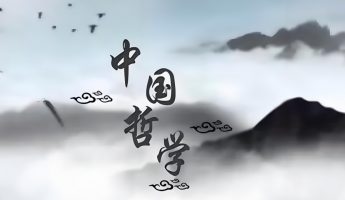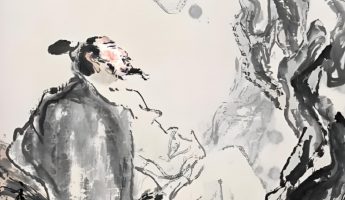Chinese traditional philosophy of life is rooted in profound cultural heritage and philosophical ideas, and its diversity stems from the value orientations and cultural connotations of different schools of thought. From the perspective of historical influence and structural characteristics, the four major schools of thought, Confucianism, Taoism, Mohism, and Legalism, are particularly prominent, each constructing a unique philosophical system of life.
The Confucian philosophy of life advocates morality and practice, and promotes a proactive and realistic attitude towards life. Confucianism regards benevolence, righteousness, propriety, wisdom, and trustworthiness as core moral principles, emphasizing the equal importance of personal cultivation and social responsibility. Confucian scholars pursue to become “sages” and “benevolent individuals”, and through the practice of “sacrificing one’s life for righteousness”, achieve the sublimation of personal value. As a representative of Confucianism, Confucius encouraged his disciples to study diligently, constantly strive for progress, and face life with a positive and proactive attitude. His teachings, such as “never tire of learning and never tire of teaching others,” still inspire countless people today.
The Taoist philosophy of life tends to pursue spiritual freedom and inner peace, advocating an idealistic state of life that transcends the secular world. Taoism emphasizes the principle of “governing by inaction”, advocating for conformity to nature, reducing selfish desires, and maintaining inner purity and freedom. Laozi and Zhuangzi are representative figures of Taoist philosophy. They advocate for “the highest good is like water” and “leisurely wandering”, emphasizing humility in dealing with the world, self-cultivation, and the pursuit of a life state that returns to simplicity. Taoist philosophy not only focuses on the spiritual liberation of individuals, but also contains profound wisdom and philosophy of life.
The Mohist philosophy of life is unique, advocating the utilitarian values of “loving each other and benefiting each other”. Mozi came from a commoner background and was well versed in the hardships of the people. Therefore, his thoughts are filled with deep concern for social justice and the well-being of the people. Mohism advocates for promoting the interests of the world and eliminating its harms through practical actions, opposes extravagance, waste, and the discourse of fate, and encourages people to change their destiny through their own efforts and achieve social harmony. Mozi’s story of “Stopping Chu and Attacking Song” is a vivid embodiment of his utilitarian philosophy of life.
The philosophy of life in Legalism presents a pragmatic tendency towards quick success and pursuit of power. Legalism believes that human nature is inherently evil and requires strict legal systems to constrain human behavior and maintain social order. Legalist scholars such as Shang Yang and Wu Qi used iron fisted methods to implement reforms, emphasizing utilitarianism and effectiveness, and pursuing national prosperity and personal power at all costs. Legalist philosophy has played an important role in specific historical contexts, but it has also been controversial due to its extreme utilitarianism.
The four major schools of traditional Chinese philosophy of life have their own characteristics and together constitute the rich connotation of Chinese culture. These philosophical systems not only focus on personal cultivation and moral practice, but also deeply influence social, political, and economic development. At the same time, they also jointly embody two basic characteristics of Chinese culture: one is the consistency between being a person and studying, that is, the close connection between knowledge and morality; The second is the unity of personal cultivation and governance, emphasizing the harmonious unity of internal cultivation and external governance. These characteristics are not only the essence of traditional Chinese philosophy of life, but also an important manifestation of the unique charm of Chinese culture.



